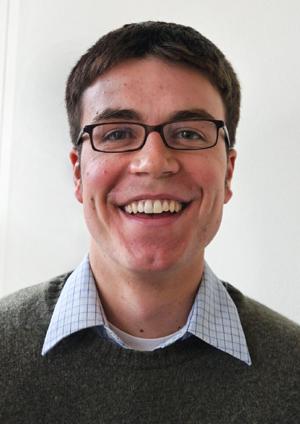
By Michael Rossmann
While Jewish newspaper columnists are not the most likely resources for breaking open the New Testament, a recent column in The New York Times by David Brooks can shed light on Scripture.
Brooks describes taking a safari in east Africa with his family during which they stayed in various camps, some of which had no running water or electricity; others were rather luxurious. At the simple camps, Brooks and his family got to know the other guests and found that the staff created a warm, family-like atmosphere.
The nicer places felt colder. Rather than getting to know the other guests through communal dinners and the staff through informal encounters, they sat at separate tables and were served by waiters who kept their distance.
Brooks uses the Yiddish word “haimish” to describe what the simpler camps had but the luxurious ones did not, a word that “suggests warmth, domesticity and unpretentious conviviality.”
When we plan a vacation, Brooks writes, we often focus on the where or the what – the sandy beaches, the famous sights, or a hotel’s amenities – but when we come back home, we generally savor memories of “who” – the people we met along the way and the relationships we formed.
Recently, I led a group of university students on a pilgrimage to World Youth Day in Spain. For two-and-a-half weeks we slept on the floor, took cold showers and rarely had access to the Internet. And we could not have been happier. While we are able to see some wonderful places, these students now rarely mention the physical locations — but continue to talk about the friendships they formed with students from all over the world and the deeper relationship they developed with God. The significance of this trip for them was the “who,” not so much the “what” or “where.”
Likewise in the Gospel, true happiness, true blessedness, is not about stuff or places but about “who.” The Gospel of Luke states, “Blessed are the poor.” Blessed are the hungry, the weeping and the hated, according to the Gospels.
Rather than being a glorification of economic poverty or pain — which can be deeply dehumanizing — Father Robert Barron, a priest of the Archdiocese of Chicago, offers this reading: “How lucky you are if you are not addicted to material things.” In interpreting blessed are you who are now weeping, Fr. Barron offers, “How lucky you are if you are not addicted to good feelings.”
Ultimately for Christians, the beatitudes can invite us to ask ourselves these questions: Is Christ enough? Is this relationship what really brings me satisfaction? Is Jesus my foundation such that I do not have to fill up my life with a lot of other stuff?
Brooks, analyzing studies on self-reported happiness, concludes that moving farther away from a city for a bigger house and lawn – especially when we then spend more time commuting and less time with loved ones – does not actually make people happy, whereas relationships and interpersonal interactions bring us joy.
His article does not, of course, talk about our relationship with Jesus, though as Christians our relationship with him – and how we often find him through the love and goodness of other people in our lives – takes on particular importance.
Privacy, space and refinement are not bad things – and we tend to choose them when we can and work in order to purchase more of them. In the process, we may end up spending less time in environments with haimish and not experience the warm interactions with others that tend to happen in those places. In the search for more stuff, we may spend less time with our loved ones and the ultimate loved One who fulfills us.
We know in theory that money does not buy happiness; we know on a deep level that filling our lives with stuff will not ultimately satisfy. At least for me, however, sometimes it takes cold showers and sleeping on a floor – or even reading a Jewish columnist – to internalize what the Gospel already tells us.
(Michael Rossmann is a Jesuit scholastic at Loyola University Chicago and a 2003 graduate of Regina Catholic Education Center in Iowa City. He can be contacted at rossmann.michael@gmail.com).








